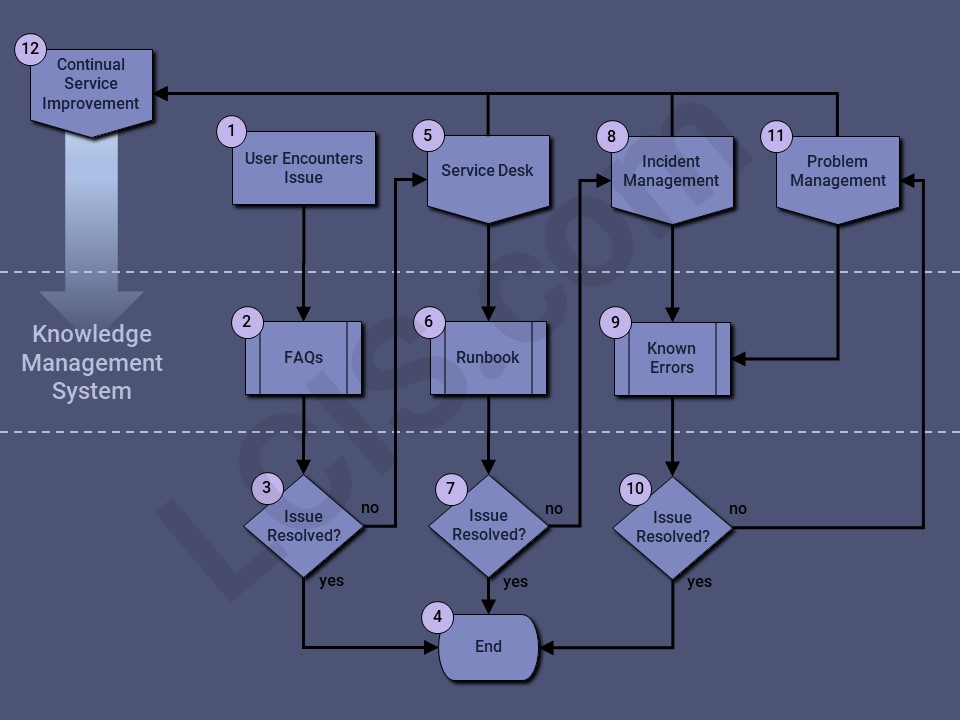Knowledge Management
Knowledge Management includes FAQs, process documents, and Known Errors related to the supported service. Known Errors can be automatically generated for Problems, and can be entered by Service Management teams. Known Errors are linked to impacted Incidents.

- A user of the service encounters an issue.
- Frequently Asked Questions (FAQs) can be reviewed by the user for general information, process documentation, escalation procedures, and self-service solutions.
- Impacted users may self-resolve their issues by consuming the FAQs, thereby eliminating the need for further assistance by the Service Management organization.
- IT organizations can realize a high return on investment when Knowledge Management is leveraged to resolve issues early in the process, without diverting Subject Matter Experts (SMEs) from other critical tasks.
- The Service Desk responsible for the impacted service is detailed in the Knowledge Management system.
- Runbooks are leveraged by Service Desk to properly route and prioritize incidents. Also included are triage instructions, basic remediation steps, and required information to capture on the Incident.
- In some cases, the initial interaction with Service Desk can resolve the issue.
- Incident Management leverages Knowledge Management at all tiered support levels.
- Known Error records are linked to affected Incidents.
- Some Incidents may be resolved by following the Known Error remediation or workaround steps. New errors that become known, may be identified as new Problems (11).
- Problem Management can auto-generate Known Error (9) records.
- Continual Service Improvement identifies additions, corrections, and updates to the Knowledge Management System from outcomes of Service Desk (5), Incident Management (8), and Problem Management (11).